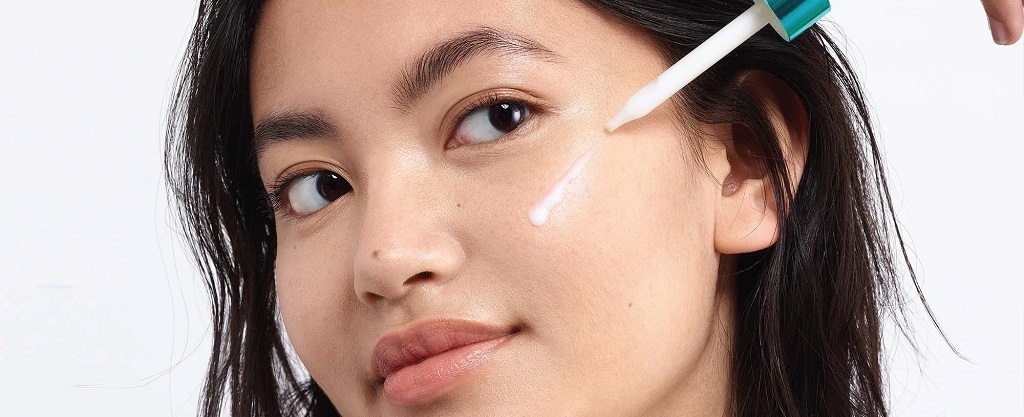Dark spots, also known as hyperpigmentation, are a common skin concern that can affect people of all ages and skin tones. These patches of darkened skin can be caused by various factors like sun damage, hormonal changes, and even acne scars. While achieving a completely spotless complexion overnight might be unrealistic, there are several effective strategies you can implement to diminish the appearance of dark spots and promote a more even skin tone.
This article explores various methods for reducing dark spots, delves into their causes, and offers valuable insights for achieving a brighter, more radiant complexion.
Understanding the Darkness: Causes of Dark Spots
Before diving into solutions, let’s explore the common culprits behind dark spots:
-
Sun Damage: Ultraviolet (UV) rays from the sun are a leading cause of hyperpigmentation. Sun exposure stimulates the production of melanin, the pigment that gives skin its color. Uneven sun exposure can cause melanin to clump together, resulting in dark spots.
-
Hormonal Changes: Fluctuations in hormone levels, particularly during pregnancy, menopause, or while taking birth control pills, can trigger hyperpigmentation.
-
Post-Inflammatory Hyperpigmentation (PIH): This occurs when inflammation from acne, injuries, or insect bites leaves behind a darkened area as the skin heals.
-
Age Spots: These are sun-related dark spots that typically appear on areas frequently exposed to the sun, such as the face, hands, and forearms.
It’s important to note that while some dark spots are harmless, others might be a sign of an underlying medical condition. If you have concerns about the sudden appearance or rapid growth of a dark spot, consult a dermatologist for proper diagnosis and treatment.
Brightening Your Outlook: Strategies for Fading Dark Spots
Here are some effective approaches you can incorporate into your skincare routine to combat dark spots:
-
Sun Protection is Key: Prevention is always better than cure. Daily use of a broad-spectrum sunscreen with SPF 30 or higher is crucial to shield your skin from further sun damage and prevent the formation of new dark spots.
-
Embrace Topical Treatments: Look for skincare products containing ingredients like:
- Hydroquinone: A powerful lightening agent that can effectively reduce melanin production. However, it can be irritating for some skin types, so a patch test is recommended before widespread use.
- Alpha Hydroxy Acids (AHAs) and Beta Hydroxy Acids (BHAs): These gently exfoliate the skin, promoting cell turnover and encouraging the fading of dark spots.
- Vitamin C and Kojic Acid: These antioxidants can help brighten the skin and even out skin tone.
-
Consider Retinol: This derivative of vitamin A promotes cell turnover and collagen production, potentially reducing the appearance of dark spots. However, retinol can be irritating, so start with a low concentration and gradually increase frequency as your skin tolerates it.
-
Explore Natural Remedies: Some natural ingredients, like lemon juice, aloe vera, and turmeric, possess mild lightening properties. However, research on their effectiveness is limited, and these remedies might irritate sensitive skin. Consult a dermatologist before using them topically.
Remember: Consistency is key! It can take several weeks or even months to see noticeable results with any treatment. Be patient, maintain a consistent routine, and don’t hesitate to consult a dermatologist if you experience any irritation or have concerns about the progress.
Beyond Products: Lifestyle Habits for Healthy Skin
While topical treatments play a significant role, a holistic approach is essential for healthy, radiant skin. Here are some lifestyle habits that complement your dark spot-fading efforts:
-
Maintain a Healthy Diet: Eating a balanced diet rich in fruits, vegetables, and whole grains nourishes your skin from within.
-
Manage Stress: Chronic stress can exacerbate skin problems, including hyperpigmentation. Practice stress-reduction techniques like yoga or meditation to promote overall well-being and potentially improve skin health.
-
Get Enough Sleep: During sleep, your skin repairs and regenerates itself. Aim for 7-8 hours of quality sleep each night.
-
Limit Inflammatory Foods: Sugary foods and processed foods can contribute to inflammation, which can worsen hyperpigmentation. Consider reducing your intake of these items.
-
Don’t Pick at Acne: Picking at acne can lead to inflammation and PIH, making dark spots more likely. Keep your hands off your face and treat acne breakouts with appropriate skincare products.

Seeking Professional Help: When to Consult a Dermatologist
If over-the-counter treatments and lifestyle changes fail to yield significant results, or if your dark spots are severe, consider consulting a dermatologist. They can offer:
-
Prescription-Strength Treatments: Dermatologists can prescribe stronger topical medications or chemical peels containing ingredients like tretinoin (a stronger form of retinol) or azelaic acid, which can be more effective in tackling stubborn dark spots.
-
Laser Treatments: In-office laser treatments can target specific areas of hyperpigmentation and break down melanin clusters for faster fading. However, these procedures can be expensive and might require multiple sessions.
-
Microneedling: This minimally invasive treatment involves creating tiny punctures in the skin to stimulate collagen production and encourage cell turnover, potentially improving the appearance of dark spots.
Remember: Consulting a dermatologist is crucial if you suspect an underlying medical condition is causing your dark spots. They can provide a proper diagnosis and recommend the most appropriate course of treatment.
Related: Aging or Ageing: Understanding the Science Behind the Process
Conclusion: A Brighter Future for Your Skin
While achieving a completely spotless complexion might not be realistic, implementing a combination of sun protection, effective topical treatments, and healthy lifestyle habits can significantly reduce the appearance of dark spots and promote a more even, radiant skin tone. Remember, patience and consistency are key. Don’t be discouraged if results aren’t immediate; with dedication and the right approach, you can achieve a healthier, more luminous complexion.




